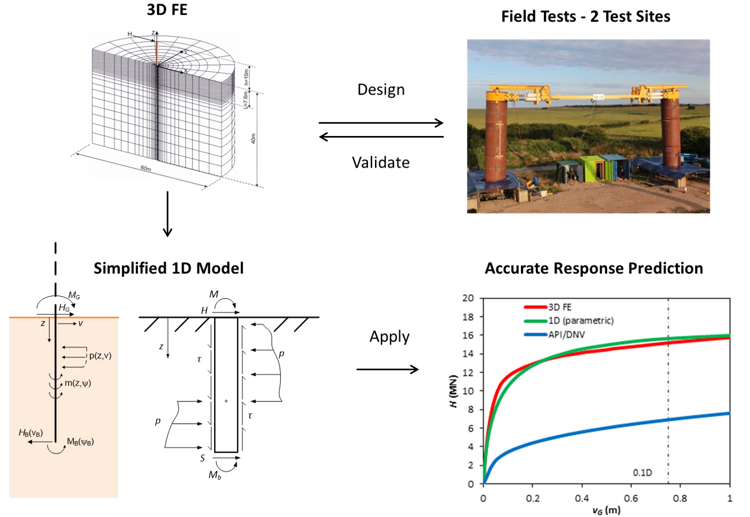PISA project, Geotechnical Engineering
PISA project

The PISA project developed new design methods to allow optimisation of monopile foundations that support offshore wind turbines. The key research achievement was to capture accurately the detailed monopile soil-structure interaction for each wind farm site, ensuring site-specific and turbine-specific optimisation to save on steel costs. The research consisted of a number of interconnected activities including (a) site investigation and laboratory element testing, (b) numerical modelling, including sophisticated three-dimensional finite element analysis, (c) theoretical developments, including development of simplified design procedures, and (d) a comprehensive medium-scale field pile testing campaign to validate the new design methods. Key outputs of the PISA design method include generic design procedures for wind farm designers, as well as bespoke design equations. These enable simplified calculations to be completed, which have the fidelity of more complex finite element calculations, but computed in a fraction of the time, covering a wide range of design conditions. The work was funded through the Carbon Trust’s Offshore Wind Accelerator, led by Ørsted, with the scientific work led by the University of Oxford, collaborating with Imperial College London and University College Dublin. For further information please contact Prof Byron Byrne.
Key publications